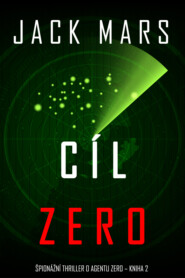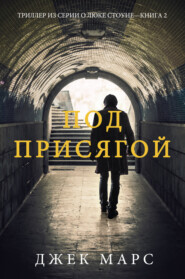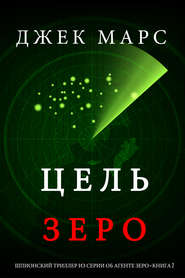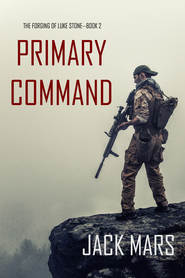По всем вопросам обращайтесь на: info@litportal.ru
(©) 2003-2024.
✖
Target Zero
Автор
Год написания книги
2019
Настройки чтения
Размер шрифта
Высота строк
Поля
“Busted,” Reid murmured. He couldn’t very well duck back into the house. He had undoubtedly been spotted. His two teenage girls stepped off the bus and down the walkway, pausing just shy of the door that he now blocked as the bus pulled away again.
“Hi, girls,” he said as brightly as possible. “How was school?”
His eldest, Maya, shot him a suspicious look as she folded her arms across her chest. “Where you going?”
“Um… to get the mail,” he told her.
“With your car keys?” She gestured to his fist, which was indeed gripping the keys to his silver SUV. “Try again.”
Yup, he thought. Busted. “The bus was late. And you know what I said, if you’re going to be late, you have to call. And why didn’t you answer your phone? I tried to call—”
“Six minutes, Dad.” Maya shook her head. “Six minutes isn’t ‘late.’ Six minutes is traffic. There was a fender-bender on Vine.”
He stepped aside as they entered the house. His younger daughter, Sara, gave him a brief hug and a murmur of, “Hi, Daddy.”
“Hi, sweetheart.” Reid closed the door behind them, locked it, and punched in the code to the alarm system again before turning back to Maya. “Traffic or not, I want you to let me know when you’re going to be late.”
“You’re neurotic,” she muttered.
“Excuse me?” Reid blinked in surprise. “You seem to be confusing neurosis with concern.”
“Oh, please,” Maya retorted. “You haven’t let us out of your sight in weeks. Not since you’ve been back.”
She was, as usual, right. Reid had always been a protective father, and he had grown more so when his wife and their mother, Kate, died two years earlier. But for the past four weeks, he had become a veritable helicopter parent, hovering and (if he was being honest) perhaps being a tad overbearing.
But he wasn’t about to admit that.
“My dear, sweet child,” he chided, “as you blossom into adulthood, you’ll have to learn a very hard truth—that sometimes, you are wrong. And right now, you are wrong.” He grinned, but she didn’t. It was in his nature to try to diffuse tension with his kids using humor, but Maya wasn’t having it.
“Whatever.” She marched down the foyer and into the kitchen. She was sixteen, and staggeringly intelligent for her age—sometimes, it seemed, too much so for her own good. She had Reid’s dark hair and penchant for dramatic discourse, but lately she seemed to have gained a proclivity toward teenage angst, or at the very least moodiness… likely brought on by a combination of Reid’s constant loitering and obvious misinformation about the events that had occurred the month before.
Sara, the younger of his two, trudged up the stairs. “I’m gonna get started on my homework,” she said quietly.
Left alone in the foyer, Reid sighed and leaned against a white wall. His heart broke for his girls. Sara was fourteen, and generally vibrant and sweet, but whenever the subject came up of what had happened in February she clammed up or quickly vacated the room. She simply didn’t want to talk about it. Just a few days earlier, Reid had tried to invite her to see a therapist, a neutral third party that she could talk to. (Of course, it would have to be a CIA-affiliated doctor.) Sara declined with a simple and succinct “no thanks” and scurried out of the room before Reid could get another word in.
He hated keeping the truth from his kids, but it was necessary. Outside of the agency and Interpol, no one could know the truth—that barely more than a month ago he had recovered a portion of his memory as an agent in the CIA under the alias Kent Steele, also known to his peers and enemies as Agent Zero. An experimental memory suppressor in his head had caused him to forget all about Kent Steele and his work as an agent for nearly two years, until the device was torn from his skull.
Most of his memories as Kent were still lost to him. They were in there, locked away somewhere in the recesses of his brain, but they trickled in like a leaky faucet, usually when a visual or verbal prompt jarred them loose. The savage removal of the memory suppressor had done something to his limbic system that prevented the memories from returning all at once—and Reid was, for the most part, glad for it. Based on what little he knew about his life as Agent Zero, he wasn’t sure he wanted them all back. His biggest trepidation was that he might remember something that he wouldn’t want to be reminded of, some painful regret or awful act that Reid Lawson could never live with knowing.
Besides, he had been extremely busy ever since the activities in February. The CIA helped him relocate his family; upon his return to the US, he and his girls were sent to Alexandria in Virginia, a short drive from Washington, DC. The agency helped to secure him a position as an adjunct professor with Georgetown University.
Ever since then had been a whirlwind of activity: getting the girls enrolled in a new school, acclimating to his new job, and moving into the house in Virginia. But Reid had played a large part in keeping himself distracted by creating plenty of busywork for himself. He painted rooms. He upgraded appliances. He purchased new furniture and new school clothes for the girls. He could afford to; the CIA had awarded him a healthy sum for his involvement in stopping the terrorist organization called Amun. It was more than he made annually as a professor. They were delivering it in monthly installments to avoid scrutiny. The checks hit his bank account as a consulting fee from a fake publishing company that claimed to be creating a series of forthcoming history textbooks.
Between the money and his copious amounts of free time—he was only doing a few lectures a week at the moment—Reid kept himself as busy as he could. Because pausing for even a few moments meant thinking, and thinking meant reflecting, not only on his fractured memory, but on other equally unpleasant things.
Like the nine names that he had memorized. The nine faces he had scrutinized. The nine lives that had been lost because of his failure.
“No,” he murmured quietly, alone in the foyer of their new home. “Don’t do that to yourself.” He didn’t want to be reminded of that now. Instead he headed into the kitchen, where Maya was digging through the refrigerator for something to eat.
“I think I’ll order some pizza,” he announced. When she said nothing, he added, “What do you think?”
She closed the fridge with a sigh and leaned against it. “It’s fine,” she said simply. Then she glanced around. “The kitchen is nicer. I like the skylight. Yard is bigger, too.”
Reid smiled. “I meant about the pizza.”
“I know,” she replied with a shrug. “You just seem to prefer avoiding the topic at hand lately, so I figured I would too.”
He recoiled again at her brashness. On more than one occasion she had pressed him for information about what had happened when he disappeared, but the conversation always ended in him insisting that his cover story was the truth, and her getting angry because she knew he was lying. Then she would drop it for a week or so before the vicious cycle began anew.
“There’s no need for that kind of attitude, Maya,” he said.
“I’m going to go check on Sara.” Maya spun on her heel and left the kitchen. A moment later he heard her feet pounding up the stairs.
He pinched the bridge of his nose in frustration. It was times like these that he missed Kate the most. She always knew just what to say. She would have known how to handle two teenagers who had been through what his girls had been through.
His willpower to continue with the lie was growing weak. He couldn’t bring himself to recite the cover story yet again, the one the CIA had supplied him with to tell his family and colleagues where he had vanished to for a week. The story went that federal agents had come to his door, demanding his assistance on an important case. As an Ivy League professor, Reid was in a unique position to help them with research. As far as the girls were aware, he had spent most of that week in a conference room, poring over books and staring at a computer screen. That was all he was allowed to say, and he couldn’t share details with them.
He certainly couldn’t tell them about his clandestine past as Agent Zero, or that he had helped stop Amun from bombing the World Economic Forum in Davos, Switzerland. He couldn’t tell them that he had singlehandedly killed more than a dozen people in the course of only days, each and every one a known terrorist.
He had to stick to his vague cover story, not only for the sake of the CIA, but for the sake of the girls’ safety. While he was away dashing madcap all over Europe, his two daughters were forced to flee New York, spending several days on their own before being picked up by the CIA and brought to a safe house. They had very nearly been abducted by a pair of Amun radicals—a thought that still made the hairs on Reid’s neck stand on end, because it meant that the terrorist group had members in the United States. It certainly lent to his overly overprotective nature as of late.
The girls had been told that the two men who tried to accost them were members of a local gang that was abducting children in the area. Sara seemed slightly skeptical of the story, but accepted it on the grounds that her father wouldn’t lie to her (which, of course, made Reid feel even more awful). That, plus her total aversion to the topic, made it easy to skirt the issue and move on with life.
Maya, on the other hand, was downright dubious. Not only was she smart enough to know better, but she had been in contact with Reid via Skype during the ordeal and had seemingly gathered enough information on her own to make some assumptions. She herself had witnessed firsthand the deaths of the two radicals at Agent Watson’s hand, and she hadn’t been quite the same since.
Reid was at a complete loss about what to do, other than to try to continue with life with as much normalcy as possible.
Reid took out his cell phone and called the pizzeria up the street, putting in an order for two medium pies, one with extra cheese (Sara’s favorite) and the other with sausage and green peppers (Maya’s favorite).
As he hung up, he heard footfalls on the stairs. Maya returned to the kitchen. “Sara’s taking a nap.”
“Again?” It seemed that Sara had been sleeping a lot during the day lately. “Is she not sleeping at night?”
Maya shrugged. “I don’t know. Maybe you should ask her.”
“I tried. She won’t tell me anything.”
“Maybe it’s because she doesn’t understand what happened,” Maya suggested.
“I told you both what happened.” Don’t make me say it again, he thought desperately. Please don’t make me lie to your face again.
“Maybe she’s scared,” Maya pressed on. “Maybe because she knows her dad, who she’s supposed to be able to trust, is lying to her—”
“Maya Joanne,” Reid warned, “you want to choose your next words carefully…”
“Maybe she’s not the only one!” Maya didn’t seem to be backing down. Not this time. “Maybe I’m scared too.”
“We’re safe here,” Reid told her firmly, trying to sound convincing even if he didn’t fully believe it himself. A headache was forming in the front of his skull. He retrieved a glass from the cupboard and filled it with cold water from the tap.
“Hi, girls,” he said as brightly as possible. “How was school?”
His eldest, Maya, shot him a suspicious look as she folded her arms across her chest. “Where you going?”
“Um… to get the mail,” he told her.
“With your car keys?” She gestured to his fist, which was indeed gripping the keys to his silver SUV. “Try again.”
Yup, he thought. Busted. “The bus was late. And you know what I said, if you’re going to be late, you have to call. And why didn’t you answer your phone? I tried to call—”
“Six minutes, Dad.” Maya shook her head. “Six minutes isn’t ‘late.’ Six minutes is traffic. There was a fender-bender on Vine.”
He stepped aside as they entered the house. His younger daughter, Sara, gave him a brief hug and a murmur of, “Hi, Daddy.”
“Hi, sweetheart.” Reid closed the door behind them, locked it, and punched in the code to the alarm system again before turning back to Maya. “Traffic or not, I want you to let me know when you’re going to be late.”
“You’re neurotic,” she muttered.
“Excuse me?” Reid blinked in surprise. “You seem to be confusing neurosis with concern.”
“Oh, please,” Maya retorted. “You haven’t let us out of your sight in weeks. Not since you’ve been back.”
She was, as usual, right. Reid had always been a protective father, and he had grown more so when his wife and their mother, Kate, died two years earlier. But for the past four weeks, he had become a veritable helicopter parent, hovering and (if he was being honest) perhaps being a tad overbearing.
But he wasn’t about to admit that.
“My dear, sweet child,” he chided, “as you blossom into adulthood, you’ll have to learn a very hard truth—that sometimes, you are wrong. And right now, you are wrong.” He grinned, but she didn’t. It was in his nature to try to diffuse tension with his kids using humor, but Maya wasn’t having it.
“Whatever.” She marched down the foyer and into the kitchen. She was sixteen, and staggeringly intelligent for her age—sometimes, it seemed, too much so for her own good. She had Reid’s dark hair and penchant for dramatic discourse, but lately she seemed to have gained a proclivity toward teenage angst, or at the very least moodiness… likely brought on by a combination of Reid’s constant loitering and obvious misinformation about the events that had occurred the month before.
Sara, the younger of his two, trudged up the stairs. “I’m gonna get started on my homework,” she said quietly.
Left alone in the foyer, Reid sighed and leaned against a white wall. His heart broke for his girls. Sara was fourteen, and generally vibrant and sweet, but whenever the subject came up of what had happened in February she clammed up or quickly vacated the room. She simply didn’t want to talk about it. Just a few days earlier, Reid had tried to invite her to see a therapist, a neutral third party that she could talk to. (Of course, it would have to be a CIA-affiliated doctor.) Sara declined with a simple and succinct “no thanks” and scurried out of the room before Reid could get another word in.
He hated keeping the truth from his kids, but it was necessary. Outside of the agency and Interpol, no one could know the truth—that barely more than a month ago he had recovered a portion of his memory as an agent in the CIA under the alias Kent Steele, also known to his peers and enemies as Agent Zero. An experimental memory suppressor in his head had caused him to forget all about Kent Steele and his work as an agent for nearly two years, until the device was torn from his skull.
Most of his memories as Kent were still lost to him. They were in there, locked away somewhere in the recesses of his brain, but they trickled in like a leaky faucet, usually when a visual or verbal prompt jarred them loose. The savage removal of the memory suppressor had done something to his limbic system that prevented the memories from returning all at once—and Reid was, for the most part, glad for it. Based on what little he knew about his life as Agent Zero, he wasn’t sure he wanted them all back. His biggest trepidation was that he might remember something that he wouldn’t want to be reminded of, some painful regret or awful act that Reid Lawson could never live with knowing.
Besides, he had been extremely busy ever since the activities in February. The CIA helped him relocate his family; upon his return to the US, he and his girls were sent to Alexandria in Virginia, a short drive from Washington, DC. The agency helped to secure him a position as an adjunct professor with Georgetown University.
Ever since then had been a whirlwind of activity: getting the girls enrolled in a new school, acclimating to his new job, and moving into the house in Virginia. But Reid had played a large part in keeping himself distracted by creating plenty of busywork for himself. He painted rooms. He upgraded appliances. He purchased new furniture and new school clothes for the girls. He could afford to; the CIA had awarded him a healthy sum for his involvement in stopping the terrorist organization called Amun. It was more than he made annually as a professor. They were delivering it in monthly installments to avoid scrutiny. The checks hit his bank account as a consulting fee from a fake publishing company that claimed to be creating a series of forthcoming history textbooks.
Between the money and his copious amounts of free time—he was only doing a few lectures a week at the moment—Reid kept himself as busy as he could. Because pausing for even a few moments meant thinking, and thinking meant reflecting, not only on his fractured memory, but on other equally unpleasant things.
Like the nine names that he had memorized. The nine faces he had scrutinized. The nine lives that had been lost because of his failure.
“No,” he murmured quietly, alone in the foyer of their new home. “Don’t do that to yourself.” He didn’t want to be reminded of that now. Instead he headed into the kitchen, where Maya was digging through the refrigerator for something to eat.
“I think I’ll order some pizza,” he announced. When she said nothing, he added, “What do you think?”
She closed the fridge with a sigh and leaned against it. “It’s fine,” she said simply. Then she glanced around. “The kitchen is nicer. I like the skylight. Yard is bigger, too.”
Reid smiled. “I meant about the pizza.”
“I know,” she replied with a shrug. “You just seem to prefer avoiding the topic at hand lately, so I figured I would too.”
He recoiled again at her brashness. On more than one occasion she had pressed him for information about what had happened when he disappeared, but the conversation always ended in him insisting that his cover story was the truth, and her getting angry because she knew he was lying. Then she would drop it for a week or so before the vicious cycle began anew.
“There’s no need for that kind of attitude, Maya,” he said.
“I’m going to go check on Sara.” Maya spun on her heel and left the kitchen. A moment later he heard her feet pounding up the stairs.
He pinched the bridge of his nose in frustration. It was times like these that he missed Kate the most. She always knew just what to say. She would have known how to handle two teenagers who had been through what his girls had been through.
His willpower to continue with the lie was growing weak. He couldn’t bring himself to recite the cover story yet again, the one the CIA had supplied him with to tell his family and colleagues where he had vanished to for a week. The story went that federal agents had come to his door, demanding his assistance on an important case. As an Ivy League professor, Reid was in a unique position to help them with research. As far as the girls were aware, he had spent most of that week in a conference room, poring over books and staring at a computer screen. That was all he was allowed to say, and he couldn’t share details with them.
He certainly couldn’t tell them about his clandestine past as Agent Zero, or that he had helped stop Amun from bombing the World Economic Forum in Davos, Switzerland. He couldn’t tell them that he had singlehandedly killed more than a dozen people in the course of only days, each and every one a known terrorist.
He had to stick to his vague cover story, not only for the sake of the CIA, but for the sake of the girls’ safety. While he was away dashing madcap all over Europe, his two daughters were forced to flee New York, spending several days on their own before being picked up by the CIA and brought to a safe house. They had very nearly been abducted by a pair of Amun radicals—a thought that still made the hairs on Reid’s neck stand on end, because it meant that the terrorist group had members in the United States. It certainly lent to his overly overprotective nature as of late.
The girls had been told that the two men who tried to accost them were members of a local gang that was abducting children in the area. Sara seemed slightly skeptical of the story, but accepted it on the grounds that her father wouldn’t lie to her (which, of course, made Reid feel even more awful). That, plus her total aversion to the topic, made it easy to skirt the issue and move on with life.
Maya, on the other hand, was downright dubious. Not only was she smart enough to know better, but she had been in contact with Reid via Skype during the ordeal and had seemingly gathered enough information on her own to make some assumptions. She herself had witnessed firsthand the deaths of the two radicals at Agent Watson’s hand, and she hadn’t been quite the same since.
Reid was at a complete loss about what to do, other than to try to continue with life with as much normalcy as possible.
Reid took out his cell phone and called the pizzeria up the street, putting in an order for two medium pies, one with extra cheese (Sara’s favorite) and the other with sausage and green peppers (Maya’s favorite).
As he hung up, he heard footfalls on the stairs. Maya returned to the kitchen. “Sara’s taking a nap.”
“Again?” It seemed that Sara had been sleeping a lot during the day lately. “Is she not sleeping at night?”
Maya shrugged. “I don’t know. Maybe you should ask her.”
“I tried. She won’t tell me anything.”
“Maybe it’s because she doesn’t understand what happened,” Maya suggested.
“I told you both what happened.” Don’t make me say it again, he thought desperately. Please don’t make me lie to your face again.
“Maybe she’s scared,” Maya pressed on. “Maybe because she knows her dad, who she’s supposed to be able to trust, is lying to her—”
“Maya Joanne,” Reid warned, “you want to choose your next words carefully…”
“Maybe she’s not the only one!” Maya didn’t seem to be backing down. Not this time. “Maybe I’m scared too.”
“We’re safe here,” Reid told her firmly, trying to sound convincing even if he didn’t fully believe it himself. A headache was forming in the front of his skull. He retrieved a glass from the cupboard and filled it with cold water from the tap.











